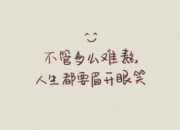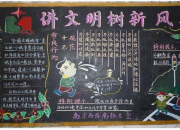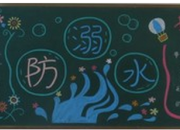《鱼我所欲也》中文及英文翻译
时间:2021-08-31引导语:《鱼我所欲也》选自《孟子·告子上》,论述了孟子的一个重要主张:义重于生,当义和生不能两全时应该舍生取义。这部伟大的作品除了中国人喜欢之外,也一样为世界所喜爱。下面是小编整理的《鱼我所欲也》中文及英文翻译,一起来学习吧。
鱼我所欲也
孟子
原文
鱼,我所欲也,熊掌,亦我所欲也,二者不可得兼,舍鱼而取熊掌者也。生,亦我所欲也,义,亦我所欲也,二者不可得兼,舍生而取义者也。生亦我所欲,所欲有甚于生者,故不为苟得也。死亦我所恶,所恶有甚于死者,故患有所不辟也。如使人之所欲莫甚于生,则凡可以得生者何不用也。使人之所恶莫甚于死者,则凡可以辟患者何不为也!由是则生而有不用也;由是则可以辟患而有不为也。是故所欲有甚于生者,所恶有甚于死者。非独贤者有是心也,人皆有之,贤者能勿丧耳。
一箪食,一豆羹,得之则生,弗得则死。呼尔而与之,行道之人弗受;蹴尔而与之,乞人不屑也。
万钟则不辩礼义而受之,万钟于我何加焉!为宫室之美,妻妾之奉,所识穷乏者得我与?乡为身死而不受,今为宫室之美为之;乡为身死而不受,今为妻妾之奉为之;乡为身死而不受,今为所识穷乏者得我而为之:是亦不可以已乎?此之谓失其本心。
英文翻译
Mencius says, “Fish is what I desire, and so are bear’s paws. If I cannot have them both, I would choose the latter and forsake the former. Life is what I desire, and so is righteousness. If I cannot have them both, I would choose the latter and forsake the former. To be sure, life is desirable, but I will not stick to it discreditably if something more precious is to be desired. I hate death, but I will not shun it when there is something more abhorrent than it. To make life one’s greatest desire, what one would not resort to if only he could preserve it? To make death one’s greatest abhorrence, what one would not do if only he could avert it? Hence there is something not to be resorted to even for the preservation of life and something not to be done even for the evasion of death. Therefore, that one would prefer righteousness to life and abhor iniquity more than death is not only the case with sages, but is also true of everybody. What makes the difference is that the former would on no account lose this inclination. A morsel of food and a bowl of soup, however indispensable to his survival, would be rejected by a wanderer if given with indignities, and would be distained by a beggar if given with kicks. ”
“Thousands of piculs of grain acquired as reward without paying regard to honor and justice—what good would they do to me? Just useful for building splendid houses, supporting wife and concubines, or for winning the gratitude of poor acquaintances? Previously I refused them, even setting death at defiance. Yet now I accept them for the sake of building splendid houses, supporting wife and concubines and winning the gratitude of poor acquaintances—could it be said to be reasonable? It is called being destitute of one’s inborn nature. ”











